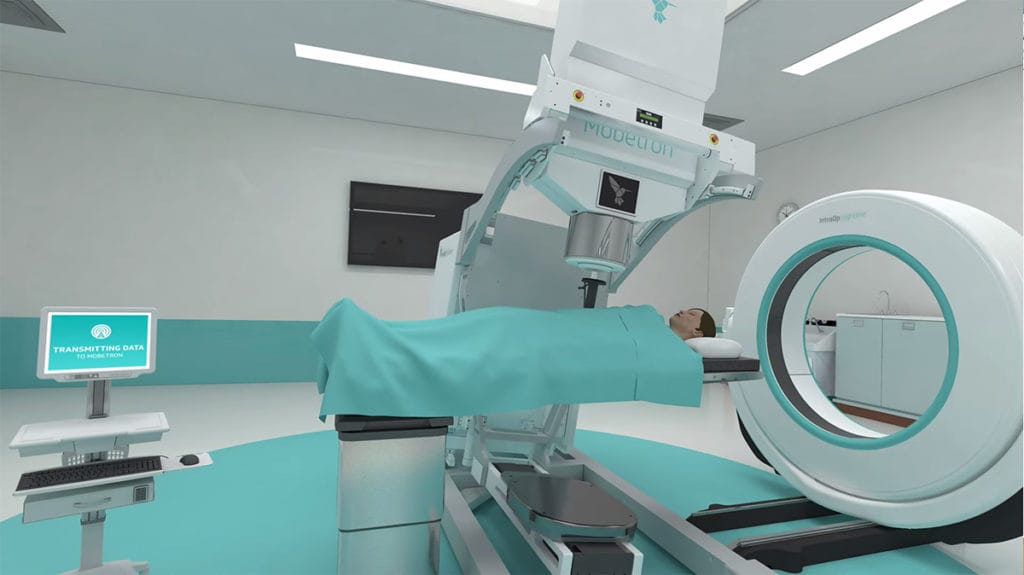Study to explore clinical benefits of electron beam IORT in the treatment borderline-resectable and locally advanced unresectable pancreatic cancer
IntraOp Medical Corporation announced today the enrollment of the first patient in the PACER (Pancreatic AdenoCarcinoma with Electron intraoperative Radiation therapy) Trial: A Phase II study of electron beam intraoperative radiation therapy (IORT) following chemoradiation in patients with pancreatic cancer with vascular involvement.
In the U.S, over 55,000 patients are diagnosed with pancreatic cancer every year. The one-year survival rate is around 20% and the five-year is less than 10%. Approximately 30-40% of those patients are diagnosed with borderline-resectable or locally advanced unresectable disease.
The PACER Trial is a multi-center prospective clinical trial led by Principal Investigator Theodore S. Hong, MD of Massachusetts General Hospital. It will explore the clinical benefits of delivering IORT in patients who’ve been diagnosed with borderline-resectable and locally advanced unresectable pancreatic cancer and have undergone intensive neoadjuvant therapy including FOLFIRNOX and chemoradiation.

The primary objective of PACER is to evaluate the rate of overall survival at two years in patients with either borderline or locally advanced pancreatic cancer who receive electron beam IORT following chemotherapy and radiation therapy. Secondary objectives include progression-free survival (PFS), local control, and toxicity.
Retrospective analysis of Mass General Hospital’s data has indicated that intensive neoadjuvant treatment followed by electron beam IORT was associated with improved median survival rates. This is despite the fact that patients only received IORT in the setting of either a close/positive margins or unresectable disease without increasing the rate of serious toxicity or surgical complications. This data motivated the PACER trial.
“Pancreatic cancer remains one of the most deadly cancers. With only modest improvements in patient outcomes over the past decades; a paradigm shift is clearly needed in the management of localized pancreatic cancer.” said Theodore Hong, MD, Director of Gastrointestinal Service, Department of Radiation Oncology at Mass General Hospital in Boston, Massachusetts. “Our single institution experience has indicated promising results. We look forward to having more leading institutions such as the Mayo Clinic, University of North Carolina, UC Irvine, and Ohio State University join this trial and explore the potential benefits of adding IORT into their clinical practice.”
Our single institution experience has indicated promising results. We look forward to having more leading institutions such as the Mayo Clinic, University of North Carolina, UC Irvine, and Ohio State University join this trial and explore the potential benefits of adding IORT into their clinical practice.”
The PACER trial is the first prospective, multi-institutional study to deliver ablative doses of intraoperative radiation to pancreatic cancer patients. It aims to enroll 200 participants with borderline-resectable or locally advanced unresectable pancreatic cancer.
“We are proud to be a collaborator for the PACER Trial to accelerate and expand the clinical evidence supporting the role of electron beam IORT in successfully treating pancreatic cancer,” said Derek T. DeScioli, Chief Executive Officer of IntraOp Medical Corporation. “This trial demonstrates the power in bringing radiation therapy into the operating room. Essentially, we are enabling institutions to provide their patients with real-time multidisciplinary care and thereby unlocking potential treatment options that have not been widely available historically.”